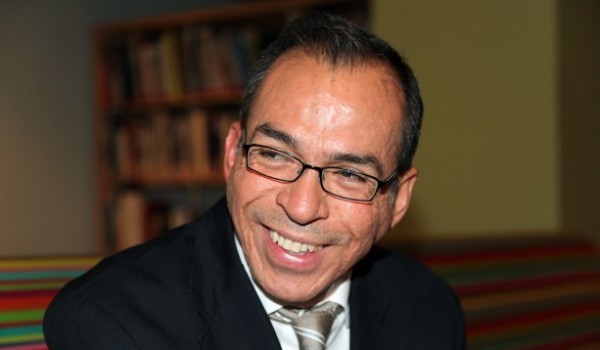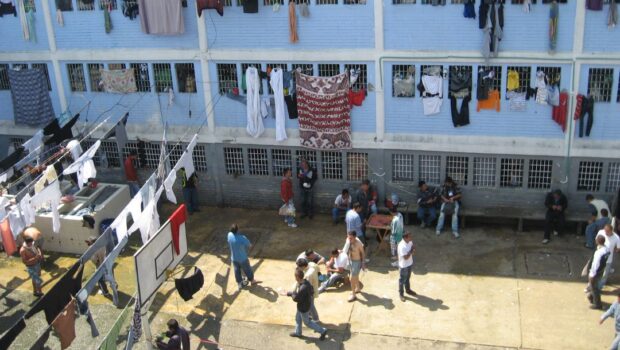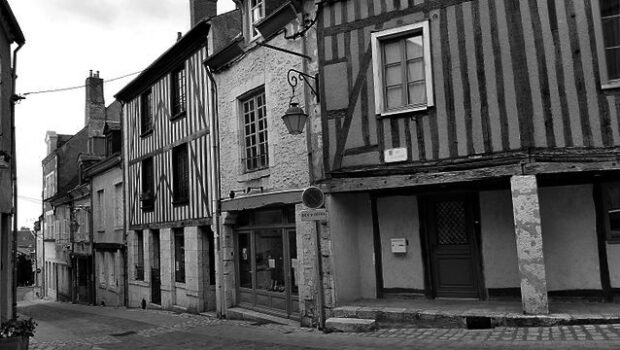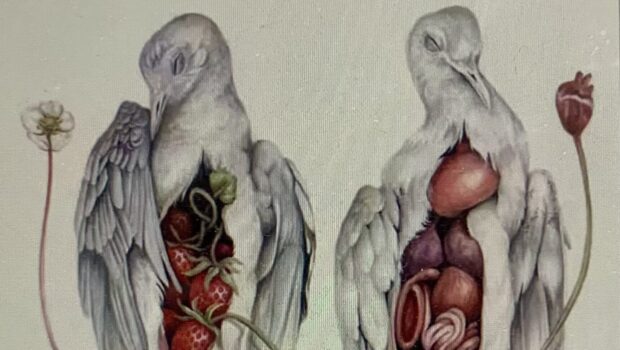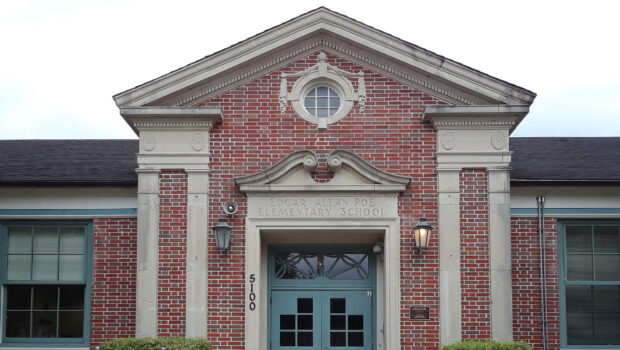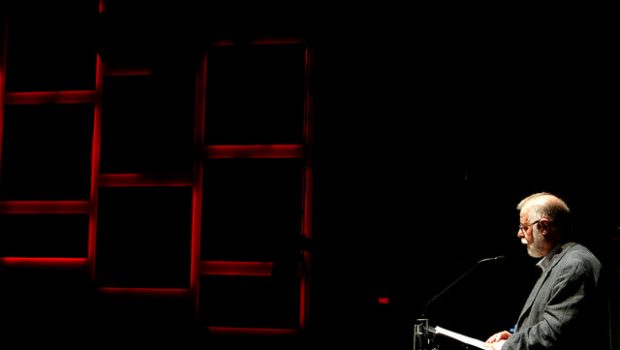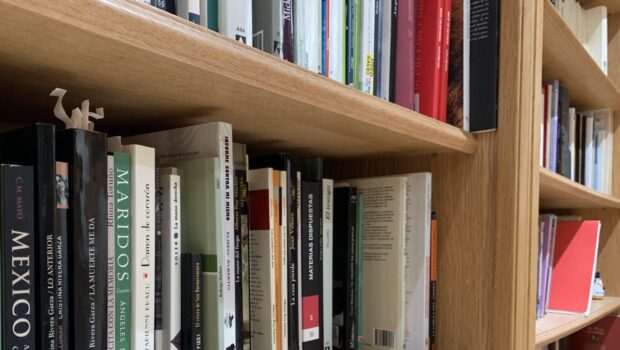FREEDOM OF THE PRESS in the Americas
Alfredo Corchado
In late July, Alfredo Corchado was invited to testify before the House Subcommittee on the Western Hemisphere regarding threats to freedom of the press in the Americas. In the following conversation, he talks about how this invitation came about and how difficult it has been to do his job in one of the most dangerous countries in the world for journalists.
***
Rose Mary Salum: Alfredo, you recently testified before the House Subcommittee on the Western Hemisphere regarding threats to freedom of the press in the Americas. You also discussed your experience reporting in Mexico, one of the most dangerous countries in the world for journalists. How did this hearing come about? Whose idea was it?
Alfredo Corchado: I was contacted by a legislative assistant for Representative Albio Sires (R-NJ) to testify before the committee on foreign affairs. I was ambivalent about the invitation. I have always believed that whatever danger I face simply pales in comparison to those confronted by my Mexican colleagues. Secondly, I wasn’t sure testifying was even something I should do as a reporter, though defending freedom of expression is something worth fighting for. I reached out to my editors, who were very supportive. One asked whether I would say anything different from what I have been saying as the author of Midnight in Mexico. My answer was no. They also thought it was important to stand up for freedom of the press and testify, using that platform to bring the plight of my colleagues to policymakers. You can imagine how I shocked I was two days later, when yet another photojournalist was killed in Mexico City under circumstances that remain unknown.
RMS: Can you tell us how your experience reporting in Mexico has been?
AC: I feel incredibly lucky that my dream of working, living, and reconnecting with Mexico has come true. I’ve had a front seat as a witness to some of the most historic events in Mexico, and I’ve had the great honor of sharing the hopes, dreams and pain of so many people with readers throughout the world through my reporting. Giving them a voice underscores why I got into journalism: At one point in my life, someone also gave me a voice. As happy and lucky as I feel, working in Mexico has also been incredibly painful. As we say in Mexico, México duele. At times I walk the streets of my homeland with so much hope, and too often with sadness and pain to see dashed hopes, so much tragedy, bloodshed. I see a country that takes one step forward and two back, and yet amid what at times feel like the darkest moments of Mexico I also see the best of Mexicans, a people who are slowly, sometimes painfully slow, trying to hold the powerful accountable. It’s a long tunnel and we know that somewhere out there is a light, perhaps a weak light. The problem is, we don’t know how long that tunnel is.
RMS: According to government statistics, more than 120,000 people have been killed or have disappeared in just over eight years. Article19 indicates that attacks against journalists under the current presidential administration have risen considerably. We just lost another colleague this weekend, Rubén Espinosa. Did you know him?
AC: I didn’t know Rubén personally. We had many mutual friends and I had heard about his case through them. Many of us had heard about his plight because he was very open and public about his fears, about the persecution he experienced, believing that such exposure would help him find more protection. This is part of the reason why Ruben’s killing and that of four women (Mile Virginia Martín, Alejandra Negrete, Yesenia Quiroz and Nadia Vera), in the middle-class neighborhood of La Narvarte, is a new low for Mexico. As in many high profile killings, this investigation is also filled with a lot of innuendo, a lot of speculation, but we still don’t know the facts. I’m not surprised the government has a suspect in custody, and they’re likely to find one or two more in days to come.
But convincing the journalistic and international community will be far more difficult. People just don’t trust the government. That in and of itself is a huge crisis of confidence. Whatever the reasons for the Narvarte killings, we’re seeing a chilling effect among Mexican colleagues and it has also put some foreign correspondents on edge. The best thing officials can do is conduct a real investigation, get to the facts, punish those who were behind the killings, whatever their motives were, and set an example for others. So far, the government is insinuating that the motives were robbery or linked to a Colombian woman who lived there. Does that mean that Ruben Espinosa and his friend, Nadia Vera, were simply in the wrong place at the wrong time? And why were some of them allegedly tortured, if this was simple robbery? These people didn’t appear to be wealthy. We just don’t know, and that is a real concern for the journalism community.
RMS: In 2007, you were also a target. The Zetas were looking for you. After that experience, Midnight in Mexico was published. How has your life changed since you published the book?
AC: When I arrive in Mexico City, I feel like I take my American chip out of my brain and stick in my Mexican one, which prepares me for anything. Until Ruben’s killing, I saw Mexico City as a safe haven. These days I’m a lot more paranoid, nervous, constantly watching my back; something I always do in provincia, the countryside. I have developed habits, like constantly changing my routine. I have favorite hangouts in Mexico City, which is not recommended; but I know exactly where to sit: always with my back to the wall, always within eyesight of everything. I used to be a trusting person. I’m no longer like that. It’s certainly taking much of the fun out of living and working in Mexico. I still love the city, the country, but I worry a lot more. I still see the beauty, and it still feeds into my nostalgia of my homeland, especially when I am away, but at times I also feel betrayed and angry over the incompetence, the corruption of Mexico’s leaders. I question why it has taken so long for civil society to take root. Why, at times, there is not more shared anger. Why the massacre of Ayotzinapa hasn’t galvanized into a united front. Imagine 43 students from Rice University massacred! Just imagine the outcome, the outcry! In Mexico, the killing of journalists has an impact on social media, trending topics on Twitter, or Facebook, but not much else. I also question many of the policies of my adopted homeland, the United States, and often have to reconcile living in-between both countries, playing the role of bridge through my reporting, hoping that somehow, someway my reporting and that of my colleagues can better inform both sides to take action.
RMS: According to Freedom House, Mexico was considered a “free country” from 2001 to 2011. Since then, Freedom House has rated Mexico “Not Free” in its annual Freedom of the Press report. How much worse it can get?
AC: I think it just got worse. Whatever the motive for the killings of Ruben Espinosa and the four women, the killing was a new low for Mexico. Espinosa was killed in Mexico City, considered a safe haven, a bubble, a place of refuge for dozens of journalists from provincia fleeing persecution, fleeing for their lives. There’s more subtle pressure via government advertising. Many in the media downplay some of the top social issues in Mexico and have opted to play up the new government narrative of a brighter moment for Mexico, although it’s harder and harder to keep that theme alive for fear of becoming irrelevant as a reporter. Many colleagues see the killing of Espinosa (and as I write this, another journalist in Veracruz) plus more than a hundred others as clear intimidation on the part of criminal groups in collusion with corrupt elements in the government. As Mexico tries to strengthen democracy, this new low will make it that much more difficult for journalists to do their jobs. A strong democracy needs solid investigative journalism as part of its checks and balances. The quality of democracy also depends on the quality of journalism. They go together, hand-in-hand. Instead, you have journalists playing the uncomfortable role of demanding justice for their colleagues on the streets of Mexico City. Journalists have become activists, and who can really blame them?
RMS:You’ve mentioned that the Mexican government has a mechanism in place to protect journalists, one that the U.S. government supports. The government also has a special prosecutor. But both the mechanism and the prosecutor are largely ineffective. So what can be done to really end this terrible situation?
AC: It’s important to know that the U.S. government is supporting these efforts through millions of taxpayer dollars and as such, it provides an opening and opportunity for Americans who ask ‘‘what can we do?” to do more. There’s a need for much more pressure from the U.S. side to ensure that this mechanism works, that the deaths of journalists are investigated, that culprits are caught and punished. Currently, the impunity rate for the killing of journalist is at least 90 percent. You can’t call yourself a democratic country and have those levels of impunity. I said in my testimony and during talks that in Mexico, they kill you twice: Once with a bullet, or by dumping your body into acid, and then they kill you a second time through character assassination, through innuendos, suggesting that you were perhaps taking money from organized crime, or a number of other reasons. Only serious, deep and probing investigations on the part of competent authorities can help provide real answers. Whatever the case, there’s a chilling effect on freedom of expression and that in itself is the real victim not just for journalists but for society.
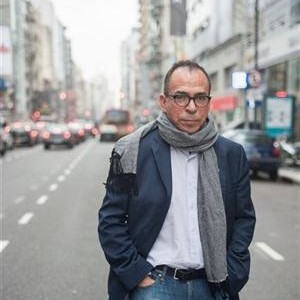 Alfredo Corchado is Mexico Bureau Chief for The Dallas Morning News and author of Midnight in Mexico (Penguin, 2014). His Twitter is @ajcorchado
Alfredo Corchado is Mexico Bureau Chief for The Dallas Morning News and author of Midnight in Mexico (Penguin, 2014). His Twitter is @ajcorchado
Posted: August 13, 2015 at 9:00 pm


